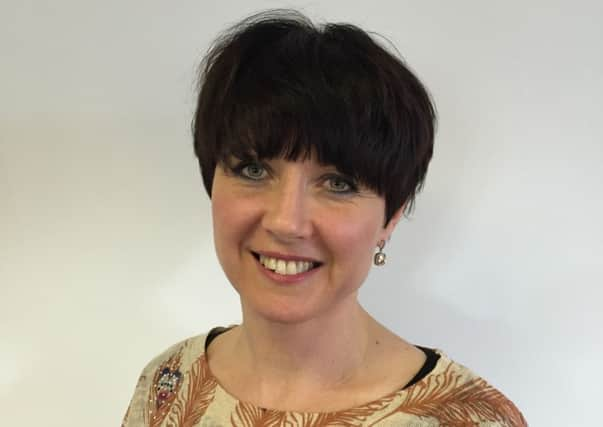It's inexcusable to link women's rights so closely to eroding the unborn right to life


The intention here is to muzzle from challenge the cultural doctrine of autonomy. To even question would be committing the secular sin of blasphemy, you would be outed as a misogynistic dinosaur, out of step with modern society.
In short, you don’t trust women.
But according to the results of polling announced last week rhetoric is not reflective of the views of many women.
Advertisement
Hide AdAdvertisement
Hide AdComRes*, commissioned by Where do they Stand? carried out the most extensive polling on attitudes to abortion in Great Britain in a decade.
Over 2,000 people in England, Wales and Scotland were asked a range of questions on the issues of support and care services in pregnancy, and abortion access.
The results are timely because this year marks fifty years since the 1967 Abortion Act was introduced. Since then over 8 million abortions have been performed, one in three women will have an abortion by age 45 and today for every four children born, one has been aborted.
The responses are significant because they reveal that the dominant narrative we hear in much of the media about abortion may have to change to better reflect the views of women in the wider population.
Advertisement
Hide AdAdvertisement
Hide AdThese results indicate that 84% of women want better support for women facing pregnancy crisis; 93% want pregnancy crisis counselling independent of the abortion provider; 79% are in favour of a waiting period between a counselling appointment and the abortion procedure; 70% want parental involvement when an underage girl faces an unplanned pregnancy; and 76% want doctor verification as a safeguard against coercion.
It is not surprising to us that only 1 per cent of women want the abortion time limit raised to birth. But that figure is striking when we think that some of the loudest voices calling for open access to abortion would deny all attempts to limit any access to abortion. Most women, 70 per cent, want the upper age limit on abortion reduced, and 91 per cent want to see a ban on sex-selective abortions, which they recognise targets girl babies.
In short women want better for women than more abortions. Most women recognise the value in unborn life and that they face pregnancy crises for all sorts of reasons, meaning that they need more from friends, family and society than tacit trust.
It is inexcusable that the extension of women’s rights has been indissolubly linked with the erosion of the right to life of our unborn children. This is not progress, freedom or equality – quite the opposite. Standing in solidarity with women in their pregnancy does not mean championing abortion which devalues the very value of life for everyone within that community.
Advertisement
Hide AdAdvertisement
Hide AdWomen should never have to choose between their children and their relationships, their education or their career. The solution to discrimination against women should not be more discrimination against a different, more vulnerable, group - the unborn.
While it is common for Northern Ireland to be portrayed as backward for its safeguards on the law on abortion, as a society we are much closer to the definition of family planning set out by the UN as a human right. The Cairo Convention (1994), says that abortion is not to be promoted as a method of family planning. It says, in fact, that good family planning is integral to ensuring that there is no need for recourse to abortion.
Unlike the rest of GB perhaps we in Northern Ireland have been “cushioned” from the impact of pro-abortion policies and their inevitable outworking. When abortion is normalised as a choice, as this polling shows, many women do not see that as best care for women and unborn children.
Opinion polls are interesting and helpful as a social barometer, but they can swing and change. If we believe that the lives of unborn children and women matter, whether the polls are with us or against, then we must work to deliver services and create a culture that enables life-affirming choices. Our guiding principle is simple and good for everyone in society - both lives matter.
Advertisement
Hide AdAdvertisement
Hide Ad• Dawn McAvoy works for Both Lives Matter, a campaign of individuals and organisations in Northern Ireland advocating for better services, a life-affirming culture and the retention of the law which seeks to protect the lives and health of both women and unborn children. The campaign is supported by the Evangelical Alliance.
* ComRes interviewed 2,008 British adults online May 12 to 14. Data was weighted to be representative of all GB adults. ComRes is a member of the British Polling Council and abides by its rules